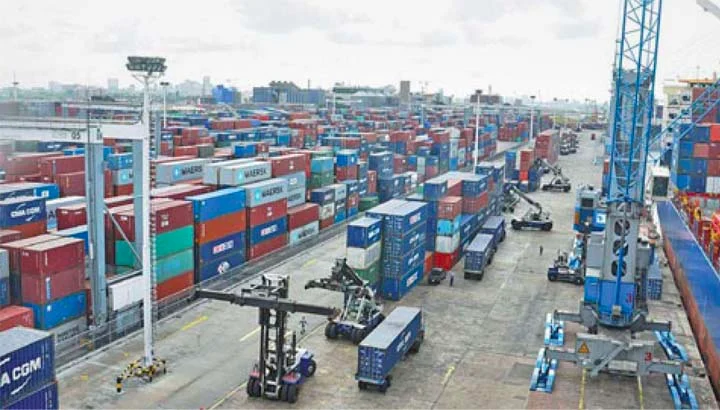Breaking News
JUST IN: Chinese imports may undermine African manufacturing — Report
According to reports the imports of Chinese products will impact wages, which is differed on the basis of gender, and products, especially, in Ethiopia. Employment levels declined overall for male and female manufacturing workers. But women bore a disproportionate burden. Manufacturing firms exposed to increased Chinese competition employed fewer female production workers than men.

The influx of Chinese products has become a major concern for the African countries’ industrialization as Beijing’s cheap products are affecting the small industries of Africa.
China is currently Africa’s largest trading partner and also the leading country of raw materials. China provided 16 per cent of Africa’s total in 2018.
China’s cheap products are way ahead in the competition of the domestic manufacturers of Africa and in the end, they would be compelled to exit the market. They will end up with no new job creation. There are serious implications for the continent’s economic development because industrialization is widely seen as critical to improving living standards. There are also concerns about the impact Chinese manufactured exports are having on wages in importing countries.
According to reports the imports of Chinese products will impact wages, which is differed on the basis of gender, and products, especially, in Ethiopia. Employment levels declined overall for male and female manufacturing workers. But women bore a disproportionate burden. Manufacturing firms exposed to increased Chinese competition employed fewer female production workers than men.
It has been witnessed that under competitive pressure, Ethiopian companies lay off female workers rather than males. Also, in labour-intensive jobs, firms have a preference for men because of their physical strength. Total male employment hasn’t been adversely affected by the Chinese import competition. But men’s wages in firms facing greater import competition from China have decreased. This implies that Ethiopian manufacturing firms cope with competition by cutting down on female employment and reducing male wages, Asia Times reported. As low-wage competition from China has increased, Ethiopian manufacturing firms have reduced female production workers. This is most pronounced in firms that rely heavily on labour-intensive methods of production.
The publication suggested that African countries make their industrial policies more strong and they must ensure that Chinese manufacturing investment diffuses technology to local manufacturing firms, as per Asia Times report. It is especially important for African leaders to prevent the use of Chinese investment as a conduit to flood the market with cheap Chinese manufacturing imports that undermine local manufacturing.


















